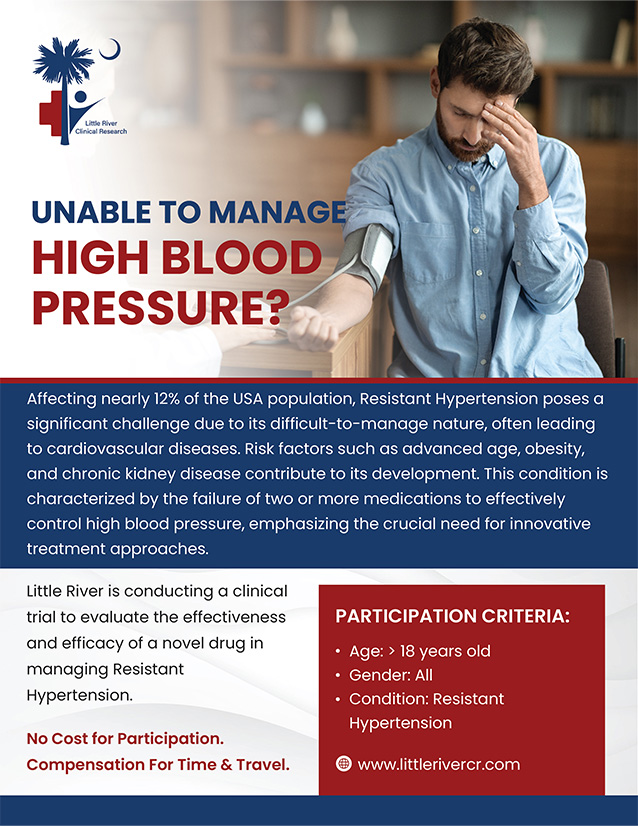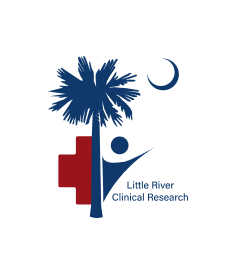It is important to participate in Resistant Hypertension clinical Trials in Little River to control your condition because uncontrolled hypertension damages arteries, leading to heart strain, organ damage, and increased stroke risk.

Study
Enroll in Resistant Hypertension Clinical Trials
(Persistent High Blood Pressure)
- Age: 18 years old
- Gender: Male
- Condition: Resistant Hypertension
- Status: Active
Hypertension Clinical Trials are starting in Little River, South Carolina, to help people with this condition manage and reduce the risk of heart failure/stroke.

About Resistant Hypertension
Resistant hypertension is high blood pressure of about 140/90 mmHg that remains uncontrolled despite using three different classes of medications at the maximum tolerated doses.
It may be related to underlying medical conditions such as chronic kidney disease, obesity, hyperthyroidism, and renal failure. However, approximately 75% of cases have an unknown cause, highlighting the complexity of managing this condition.
Contact Us
Submit A Request
Still have questions?
Frequently Asked
Questions
How does resistant hypertension differ from other types of high blood pressure?
Resistant hypertension is high blood pressure that remains uncontrolled despite using three or more medications. Other types of high blood pressure may respond to fewer medications or lifestyle changes for control.
How can participating in hypertension clinical trials benefit you?
Participating in Resistant Hypertension clinical trials in Little River offers access to new treatments, close monitoring, and contributes to advancing medical knowledge.
How can I find clinical trials that I may be eligible for?
To find clinical trials you may be eligible for, contact Little River Institute for guidance on eligibility criteria and we will share information on ongoing trials
How are participants protected during a clinical trial?
Participants in clinical trials are protected through various measures such as informed consent, ethical review boards, monitoring for safety and efficacy, and stick to strict regulatory guidelines.
